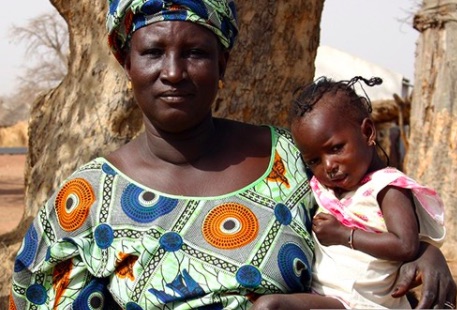. . WOMEN’S EQUALITY . .
An article from UNESCO
Local radio is raising awareness for gender violence across many hard-to-reach regions in Africa through dedicated gender-sensitive programming. Training in gender-sensitivity is assisting radio staff in the identification and removal of harmful biases and stereotypes from broadcasts and encouraging positive change in the communal perception of gender equality. UNESCO’s “Empowering Local Radio with ICTs” project is helping radio stations to inspire intolerance for gender-based violence and hold perpetrators and duty-bearers responsible.

photo © Hector Conesa/Shutterstock
In one reported case from Tanzania, a woman attempting to press an identified suspect with allegations of rape faced only indifference among municipal authorities. When local leaders demanded a bribe in exchange for the arrest of the suspect, Dodoma FM, one of the stations involved in UNESCO’s project, took up the story. They publicized the woman’s ongoing struggle until the district commissioner was stirred into action. Dodoma’s coverage of the scandal resulted in the arrest of the perpetrator of the crime, as well as punitive measures taken against the three local leaders accused of blackmail.
Gender-sensitive training helps radio staff identify and cover relevant stories, but the interest to remove harmful stereotypes in pursuing these issues is coming from local reporters. “I’m interested in gender-sensitive reporting because gender equality levels are low and more knowledge is needed. Training helped me to report on stories dealing with gender violence and child marriages in ways that can improve the situation in the community,” said Ayo Rebecca, a reporter from Radio Apac FM in Uganda, during a workshop organised by UNESCO.
Even in hard-to-reach areas, local radio stations are creating awareness and broadcasts are sounding out favourable responses in the community. At the gateway to Virunga National Park, Dorika FM in the Democratic Republic of the Congo is receiving strong local support for its programs dedicated to positive action that can contribute to greater social independence and empowerment among women. The broadcasts have been so well-received as to result in the creation of a listener’s club and NGO that in turn supports and promotes the topics of the program.
(article continued in right column)
Protecting women and girls against violence, Is progress being made?
Will UNESCO once again play a role in the culture of peace?
African journalism and the Culture of Peace, A model for the rest of the world?
How can peace be promoted by radio?
(article continued from left column)
Social perceptions and tolerance for gender-based violence, especially that occurring domestically, are significant obstacles faced in tackling this problem. Gender issues and their solutions require action that targets both men and women in order to change the social landscape that facilitates such behaviour. “Targeted radio programs have the capacity to challenge masculinity norms and the unfortunate tolerance for gender violence, as shown by Radio Ijwi ry’Umukenyezi (RIU) in Burundi,” said Mirta Lourenço, UNESCO’s Chief for Media Development.
RIU created a dedicated gender unit in their station to monitor the content of broadcasts and host awareness programs. They advocate positive behaviour amongst men and women that promotes intolerance for gender violence and disrepute for perpetrators. The program has been popular enough in the community that listeners’ groups have been formed and grateful residents have even begun to support the station by supplying RIU with water free of charge.
Aside from evoking support from the community, local radio stations are targeting duty-bearers and holding them accountable to the responsibilities of their office. Tumbatu FM in Zanzibar, Tanzania is bringing gender-based violence and the role of authorities to the forefront of social discussion through their programs. Broadcasts stressed the importance of intolerance and the necessity for reporting incidents to the local authorities rather than resolving the issue within the household. As a direct result of the awareness spread, the police have established gender desks at local stations where residents can receive information and report gender-based crimes.
To confront the issue of gender violence further, national policy can contribute in several ways through the creation and development of media regulatory bodies, as well as the promotion of media literacy amongst boys and girls to understand gender equality challenges and stereotypes. UNESCO’s “Empowering Local Radio with ICTs” project (https://en.unesco.org/radioict/), supported by Sweden, is one such international initiative that is giving priority to gender in media, improving media access and control and supplying the tools to radio staff to make positive change in their communities.
The importance of gender equality and the empowerment of women have increased to become leading priorities in both developed and developing countries as nations strive to remove the social and economic disparities between men and women. To combat the cycle caused by gender misrepresentation in media, UNESCO has also created Gender-Sensitive Indicators for Media (GSIM) to promote gender parity and women empowerment in all forms of media, as in line with the UN’s SDG 5. By addressing the significance of this issue, countries can help advocate for autonomy and the fair treatment of women, such as reducing the social tolerance for gender-based violence.